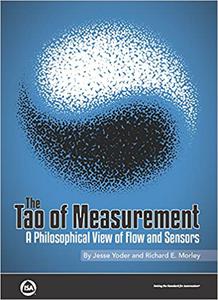
 |
 The Whiskey Rebellion: The History of Early America's Most Famous Popular Uprising by Charles River Editors English | November 11, 2017 | ISBN: 1979635439 | 45 pages | EPUB | 0.48 Mb *Includes pictures *Includes contemporary accounts of the meetings and events that incited the rebellion *Includes online resources and a bibliography for further reading *Includes a table of contents "Such excise laws had always been unpopular among the small farmers in Great Britain; they excited hatred, which they brought with them to this country, and which may be regarded as hereditary. Scarcely any of the causes of complaint which led to the revolution, had so strong a hold on the people of Pennsylvania as the stamp act, an excise regarded as an oppressive tax on colonial industry." - H.H. Brackenridge, History of the Western Insurrection in Western Pennsylvania It should come as no surprise to anyone that it is much easier to overthrow a government than form a new one, and that in turn it is easier to form a government than to govern. The men who founded America knew these facts in theory, but in the last decade of the 18th century, they learned them by experience when just a few years after the new Constitution had been ratified, a rebellion arose over taxes. As it turned out, some of the people who fought a war against taxation without representation were also upset by taxation even with Congressional representation. Given that most people are averse to being parted from their hard-earned money for any reason, this is not surprising, but it still had to be dealt with, and firmly, or the new republic might not have survived. As Secretary of Treasury, Alexander Hamilton was looking for ways to shore up the young nation's finances and pay off the debts incurred by the Revolution. At the same time, he believed in strengthening the federal government vis-à-vis the states, which would eventually make him a leader of the Federalist party but also compel him to push for a tax on distillers of alcohol, many of whom took their excess corn and grain crops and produced liquors. Ironically, Hamilton came up with the idea of this tax to avoid more direct forms of taxation, and because he didn't think it would be difficult to collect. What Hamilton didn't consider was just how ubiquitous the production of whiskey and other liquors were on the frontier, where they were often used as a form of currency itself. In addition to being upset at this new tax, Westerners believed it was disproportionately aimed at them because Americans still residing on the East Coast weren't as reliant on the production of whiskey. With opponents holding conventions in Pittsburgh, Pennsylvania, the very state currently hosting the Washington administration at the capital of Philadelphia, the opposition was viewed by many as a direct threat to the legitimacy of the federal government itself. In 1794, violence actually broke out, and with the tax opponents numbering in the thousands, President Washington himself felt compelled to raise a militia force and personally lead it to deal with the rebels, the only time an American president actually led soldiers in the field. Ultimately, no pitched battle took place once the militia was marched into western Pennsylvania, but dozens were arrested and tried for treason in the wake of the episode. While the breaking up of the revolt was praised by most Americans, Westerns continued to oppose the tax until Jefferson's administration repealed it upon coming to power in 1801. The Whiskey Rebellion of 1791: The History of Early America's Most Famous Popular Uprising looks at the origins behind one of the most famous insurrections in American history. Along with pictures of important people, places, and events, you will learn about the Whiskey Rebellion like never before, in no time at all.  Andrzej (André) Bohomolec, "The Voyage of the Yacht, Dal: from Gdynia to Chicago, 1933-34" English | ISBN: 0986885177 | 2019 | 240 pages | EPUB | 5 MB I am in awe of Irene Tomaszewski's introduction and translation of the story of the Dal and her portrait of Andrzej Bohomolec, and am grateful for the opportunity to be one of the first to read it. Personally, I feel a connection to Andrzej Bohomolec-as a dreamer, in his need to organize such a bold and risky voyage, and living through the experience, surviving the catastrophe, and finding such a success... Dal is one of the most beautiful words in Polish, and yet so hard to translate into English. In a way, the Dal is a symbol of immigrants... an independence gained by decisions, action, and being alone in a dream.  dr. Janos Drabik, "The Usury Civilization: The new world order of interest capitalism" English | ASIN : B06XGKBLSH | 2017 | 573 pages | EPUB | 0,7 MB Of all world's population, the 20 percent living in developed industrial countries consumes the 86 percent of world's resources, and the rest of the world's populations shares the remaining 14 percent.  Peter Nadin, "The Use of Force in UN Peacekeeping " English | ISBN: 1138686867 | 2018 | 320 pages | EPUB | 2 MB This edited volume provides a detailed and nuanced analysis of UN peacekeeping and the use of force, to inform a better understanding of the complex and interconnected issues at stake for the UN community. Peacekeeping is traditionally viewed as a largely passive military activity, governed by the principles of impartiality, consent, and the minimum use of force. Today, most large UN Peacekeeping Operations are only authorized to use force in defence of their mandates and to protect civilians under imminent threat of physical violence.  The Untold Power: Underrepresented Groups in Public Relations by Melody T. Fisher English | 2022 | ISBN: 1637422407 | 130 Pages | EPUB | 1.32 MB  Elisabeth Sabaditsch-Wolff, "The Truth is No Defense" English | ISBN: 1943003300 | 2019 | 350 pages | AZW3, EPUB | 4 MB + 3 MB Elisabeth Sabaditsch-Wolff is a woman caught up in extraordinary times. She has been hectored, vilified, persecuted and prosecuted for the grave offense of telling the truth about Mohammed and his marriage to a very young child as related in Islamic sacred literature. Her case has exposed the grave danger to freedom of speech (and thus, freedom of thought itself) in Europe. She fought bravely in the legal arena through the Austrian courts and on to the European Court of Human Rights to defend her freedom (and by extension the rights of all Europeans), to freely voice her opinion. She lost.  The Transculturation of Judge Dee Stories : A Cross-Cultural Perspective by Yan WEI English | 2023 | ISBN: 103231415X | 129 Pages | True PDF | 2.27 MB  Jim Szumera, "The Tool Steel Guide" English | 2003 | pages: 111 | ISBN: 0831131713 | PDF | 9,7 mb The Tool Steel Guide is an excellent aid and reference for all tool designers, tool and die makers, machinists and apprentices. It is packed with specifications, heat treatments and applications of all types of die and mold steels, as well as ideas and suggestions on how to prepare steels for machining and heat treatment. You will also find helpful information about avoidance techniques in design, finishing, grinding, electrical discharge machining and welding. This handy and convenient guide will go a long way in helping you dispel the air of mystery that for many years seems to have surrounded the selection, heat treatment and use of tool steels.  Jesse Yoder, Dick Morley, "The Tao of Measurement: A Philosophical View of Flow and Sensors" English | 2015 | pages: 246 | ISBN: 0876640919 | PDF | 5,5 mb This book deals with the past, present, and future of flow, sensors, and measurement. It is called The Tao of Measurement because, like the Tao itself, it reveals the underlying principles of flow and measurement. It explains the engineering and physics of flow and sensors, how our units of measurement were derived, present day measurement practices, and how today's scientific tools can improve our units of measurement. It's a must-read for anyone involved in instrumentation or process control.
 Léonie de Jonge, "The Success and Failure of Right-Wing Populist Parties in the Benelux Countries " English | ISBN: 0367502518 | 2021 | 210 pages | EPUB | 2 MB This book focuses on the varied support for the populist radical right in the Benelux countries: Belgium, the Netherlands and Luxembourg. Despite many common characteristics, right-wing populist parties have historically been more successful in the Netherlands and Flanders than in Luxembourg and Wallonia. |